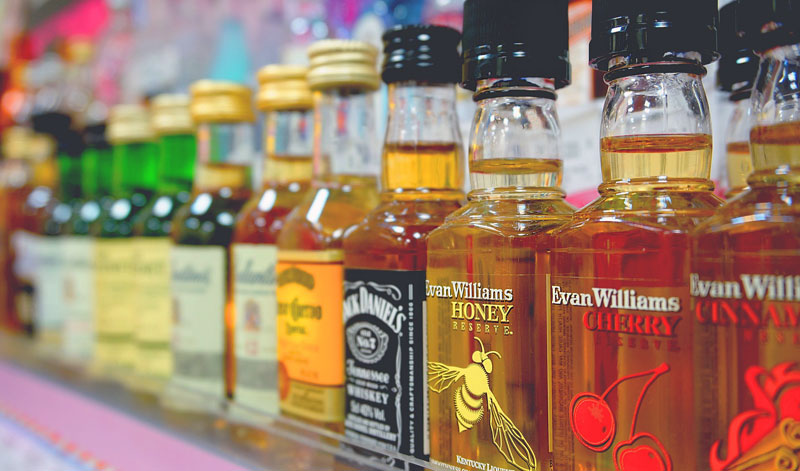 Booze warning labels worked in U.S., says researcher after Yukon study yanked warning labels
Booze warning labels worked in U.S., says researcher after Yukon study yanked warning labels
Laura Kane, The Canadian Press
A United States researcher involved in a study on alcohol warning labels in Yukon that was halted after pushback from the liquor industry says caution messages have proven effective elsewhere.
Thomas Greenfield, a leading scientist investigating the impacts of liquor on human health, says warning labels in the United States have increased awareness around drunk driving and drinking while pregnant.
The U.S. enacted a law in 1989 requiring alcoholic beverages to carry a standard government warning. The industry had previously fought efforts to introduce warning labels, but there were growing concerns at the time about fetal alcohol syndrome, said Greenfield.
“The industry essentially ended up taking up the position they wouldn’t fight it,” said Greenfield, scientific director of the California-based Alcohol Research Group.
“So it’s interesting that in other parts of the world as close as Canada, the industry is going back to its former position of fighting everything such as this.”
Greenfield was a consultant on the federally funded study in Yukon, which was the first of its kind in Canada. Beginning Nov. 20, large, colourful labels were affixed to all alcohol bottles and cans inside a Whitehorse liquor store.
There were two types of labels: one that warned that alcohol can cause cancer, including breast and colon cancer; and another that informed purchasers of the recommended maximum number of drinks per day (two for women and three for men, plus two or more non-drinking days per week).
But just four weeks later, the Yukon Liquor Corp. decided to “pause” the label study after hearing concerns from national alcohol organizations. The concerns included whether Yukon had the authority to affix the warnings and possible defamation, said the minister responsible for the liquor corporation, John Streicker.
“We have to weigh the costs that we will have to put towards litigation, costs which could go toward trying to reduce the harm of alcohol and promote education,” he said. “That’s a really hard decision for us.”
He said the liquor corporation is working with the alcohol groups and researchers to determine an approach that would work for all sides.
Timothy Stockwell, a University of Victoria researcher involved in the study, said he felt “extreme disappointment” when he learned the project was being put on hold.
“We anticipated there would be pushback, and (the liquor corporation) had anticipated that. We’re still hopeful they might continue,” he said.
The label phase of the study was supposed to run for eight months followed by a survey to assess the impact.
The colourful labels included graphics, as opposed to the U.S. messages that are text only. The U.S. labels also refer to commonly known risks, such as drinking and driving, whereas the link between alcohol and cancer is arguably less well understood by the public.
Spirits Canada president Jan Westcott said he learned about the Yukon project from a news release when the study went live. He said he raised concerns with the liquor corporation about whether labels were the best way to communicate complex issues.
He said his group supported the creation of low-risk drinking guidelines and there are better ways to communicate the risks associated with heavy drinking, including through advertising campaigns and alcohol sellers having conversations with their customers.
Westcott said a label connecting alcohol to cancer was “a bit of an overreach,” though he said studies have shown that excessive drinking has been associated with increased risk of certain types of cancer.
“We’re not denying any of that. We’re just not sure that putting the word ‘cancer’ on a label is the most effective way to convey that information,” he said.
The International Agency for Research on Cancer, a World Health Organization body, has classified alcohol as a group-one carcinogen, along with tobacco, asbestos and many other materials.
Liquor packages in Yukon already contain labels that warn against drinking while pregnant. Researchers said due to label-size limitations the existing warnings were replaced with the study labels while the project was underway.






